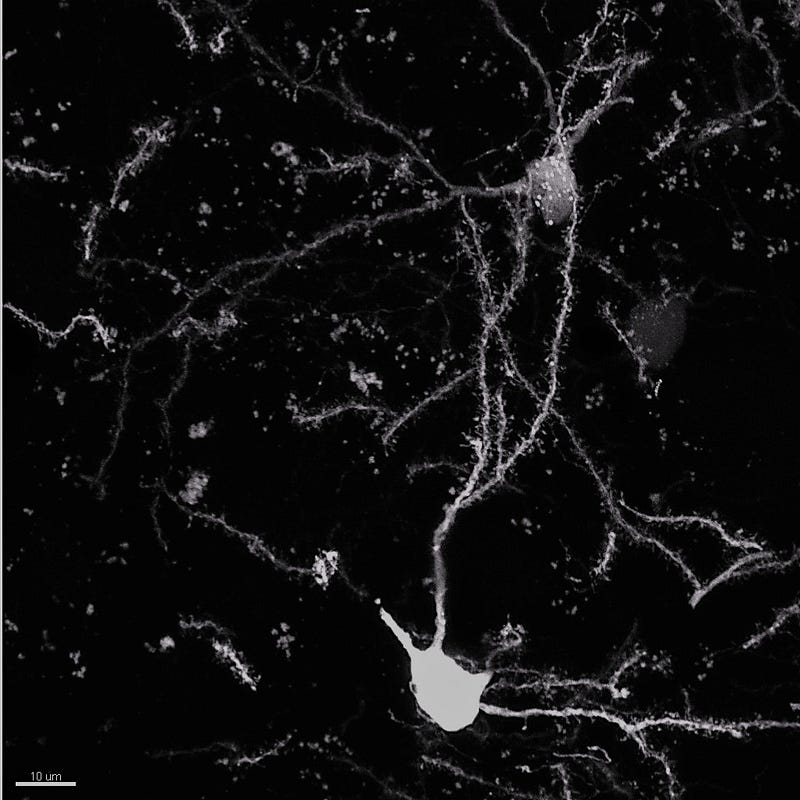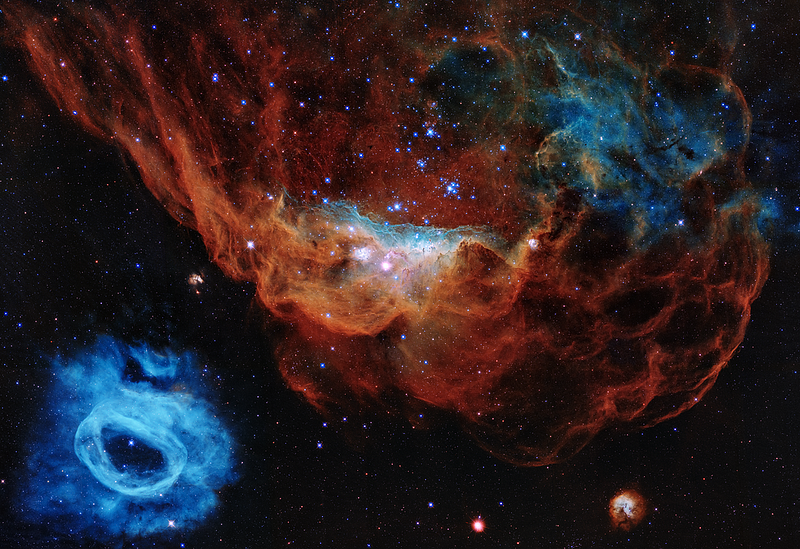Discovering Our Place in the Cosmic Journey: A Meaningful Existence
Written on

When I observe the intricate portrayal of the Universe crafted by scientific inquiry, I find it rich with significance rather than void of meaning.
I interpret "meaning" as something that transcends individual existence, imparting purpose and direction to our lives. A sense of meaning is crucial for happiness, as many individuals feel that a life of value must possess a broader purpose.
Meaning also serves as a critical foundation for ethical frameworks. Ethical systems can often be distilled to a few core principles from which rational codes of conduct can be derived. However, these principles seem arbitrary unless anchored in deeper knowledge, such as an understanding of human nature or an insight into the world itself.
For instance, Christianity and Islam derive their ethical standards from divine will, rooted in the belief that God created the Universe and that His will supersedes all else. However, this ethical framework collapses when one questions the existence of God or the morality of adhering to the will of a deity who permits suffering.
Utilitarianism posits that ethics hinge on maximizing happiness and minimizing suffering, viewing these as life's ultimate goals. Similarly, Buddhism aims to transcend suffering through self-awareness. Yet, these pursuits appear somewhat limited. We might wonder, is there not more to existence?
Nihilism embodies the belief that life lacks inherent meaning. From this perspective, the pursuit of happiness and avoidance of suffering become empty goals, rendering any ethical foundation built upon them futile. Many reject nihilism because it fosters a cynical worldview, suggesting that our actions ultimately lack significance—leading to its own form of anguish: the existential dread that life is purposeless.
A comical illustration of the nihilistic perspective stemming from scientific understanding is found in Monty Python's The Universe Song, featured in The Meaning of Life. The song humorously concludes:
“So remember, when you’re feeling very small and insecure, How amazingly unlikely is your birth. And pray that there’s intelligent life somewhere out in space, ’Cause there’s bugger all down here on Earth!”
Existentialism contends that the search for meaning must originate within our own lives and human endeavors, asserting that meaning is found internally rather than externally. This notion has gained traction among those who eschew religion in favor of a value system grounded in rationality and science. Our inherent cooperative nature, empathy, and solidarity make it meaningful to strive for the betterment of our fellow humans.
In the political realm, socialism envisions a society characterized by equality and freedom, providing a larger purpose that can guide our lives.
Nonetheless, defining ethics solely through the lens of human happiness and suffering presents challenges.
Consider environmentalism: while a healthy environment can be beneficial for humans, it’s possible for humanity to thrive even if a rare species becomes extinct. Yet, our intuition often suggests that extinguishing species is morally wrong, a principle reflected in environmental laws in many developed nations.
Similarly, proponents of scientific research often claim its value lies in its potential to cure diseases and enhance happiness. However, if this were the sole justification, we might forgo funding space exploration or particle physics, as these endeavors don’t directly alleviate suffering or promote happiness. Scientists often pursue knowledge for its own sake; scientific advancements can yield both benefits and detriments.
What I propose is that meaning can be discovered not just internally, but also externally within the Universe, and this understanding is informed by scientific knowledge rather than religious doctrine.
If we step back and consider what science reveals, we see that the Universe is not merely a collection of random events. It has been evolving since the Big Bang in a defined direction: toward increased complexity and organization. This trend can be quantified scientifically; the information required to describe the Universe has grown over time.

Initially, only fundamental particles existed—photons, electrons, protons, neutrinos, and others. As the Universe cooled, these particles formed hydrogen atoms. Stars emerged through gravitational forces, facilitating the transformation of hydrogen into helium. Over time, as stars aged, they transmuted hydrogen into carbon and other elements. Stellar explosions birthed heavier atoms, which eventually coalesced into new stars, leading to the formation of planets enriched with these complex atomic structures.
On Earth, elemental combinations of carbon, hydrogen, nitrogen, oxygen, and a few others gave rise to life. Evolution began, producing an increasingly diverse array of life forms. While evolution does not follow a specific trajectory, genetic mutations coupled with natural selection strive to fill ecological niches, resulting in both simple and complex organisms, including humans.
Humanity’s advantage in the evolutionary landscape is our large brains, enabling cooperative behavior through the transfer of knowledge across generations. Just as life once emerged, culture manifests as a novel entity. Science, as a form of culture, equips us with tools to gather and organize knowledge about the Universe, allowing us to be the eyes through which the cosmos observes itself.
We’ve come to recognize that our Sun is not unique in hosting planets capable of fostering life. Hence, similar evolutionary processes—random explorations of form followed by the emergence of intelligence—may be occurring elsewhere, across billions of stars engaged in the cosmic lottery of life.
Examining this entire process reveals a nested hierarchy, where various levels of complexity build upon one another: physics, chemistry, biology, neuroscience, psychology, and sociology. Each level has distinct rules that require separate study, a phenomenon known as emergence, where new laws arise at specific points in time, coexisting with lower-level laws yet creating entirely new phenomena.
What drives emergence? One perspective suggests that evolution and other complexity-generating processes act as algorithms—information-processing events adhering to computational rules to yield outcomes from initial conditions.
For instance, the evolutionary algorithm can be summarized as follows: 1. Generate mutations in DNA; 2. Manifest them in phenotype; 3. Assess phenotype against the environment; 4. If death occurs, discard the mutation; 5. If survival occurs, amplify the mutation through reproduction; 6. Repeat while producing offspring.
This algorithm explores the potential forms of living beings, with natural selection eliminating those unsuitable for their environments. In reality, this algorithm is itself a product of early evolution and natural selection, with mutations being non-random, as certain DNA segments exhibit higher mutation susceptibility, guided by mechanisms that promote genetic variation.
How does all this relate to finding meaning in our lives? We inherently value the complexity and self-organization evident in living beings. We also admire intelligence and culture, viewing them as a progression beyond mere life. The Universe’s trajectory toward creating life and consciousness signifies our connection to a grander process, evoking a sense of wonder.
Thus, our efforts for the betterment of humanity hold significance because they are part of this expansive cosmic narrative.
Will this process persist beyond humanity? Here, one risks falling into the teleological trap—suggesting that evolution possesses a specific goal, such as creating humans, or that the Universe aims to generate consciousness or intelligence. This notion has faced criticism, as goals are perceived as human constructs rather than attributes of inanimate matter. However, I assert that agency—acting to achieve specific outcomes—could be viewed as a characteristic of living entities. Observing the past leads to the conclusion that the Universe has evolved toward greater complexity and self-organization, culminating in the emergence of intelligent, information-rich organisms.
Transhumanism is a contemporary philosophy that, based on this cosmic perspective, posits that we can find meaning in the future evolution of humanity. It envisions a future where we coexist with computers, rather than being supplanted by them. The potential for linking our brains directly to computers or even migrating our consciousness into them is on the horizon.
In conclusion, the Universe itself may not possess inherent meaning. However, we can uncover significance by reflecting on how the Universe has evolved to foster consciousness, intelligence, and culture.
We, as humans, have the capacity to ascribe value and beauty to elements beyond ourselves. Whether it’s a crashing wave, a snow-capped mountain, or a dolphin, we find beauty in these wonders. Similarly, contemplating the cosmic events that forge stars, form planets, give rise to life, and lead to consciousness fills us with awe.
We are not separate from the cosmos; we are stardust that has achieved awareness. Our actions, the destiny of humanity, hold significance as part of this extraordinary cosmic performance. While we cannot predict the Universe’s future trajectory, we instinctively feel it will be a journey worth embarking upon.